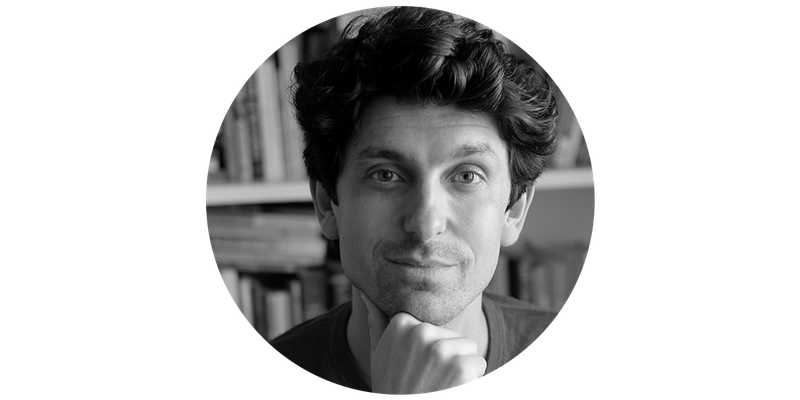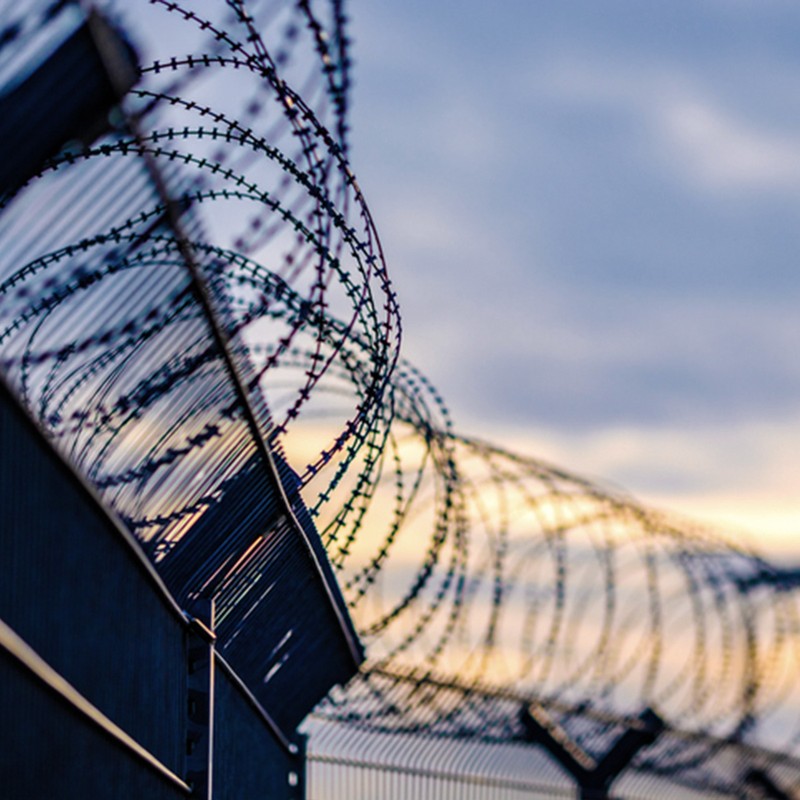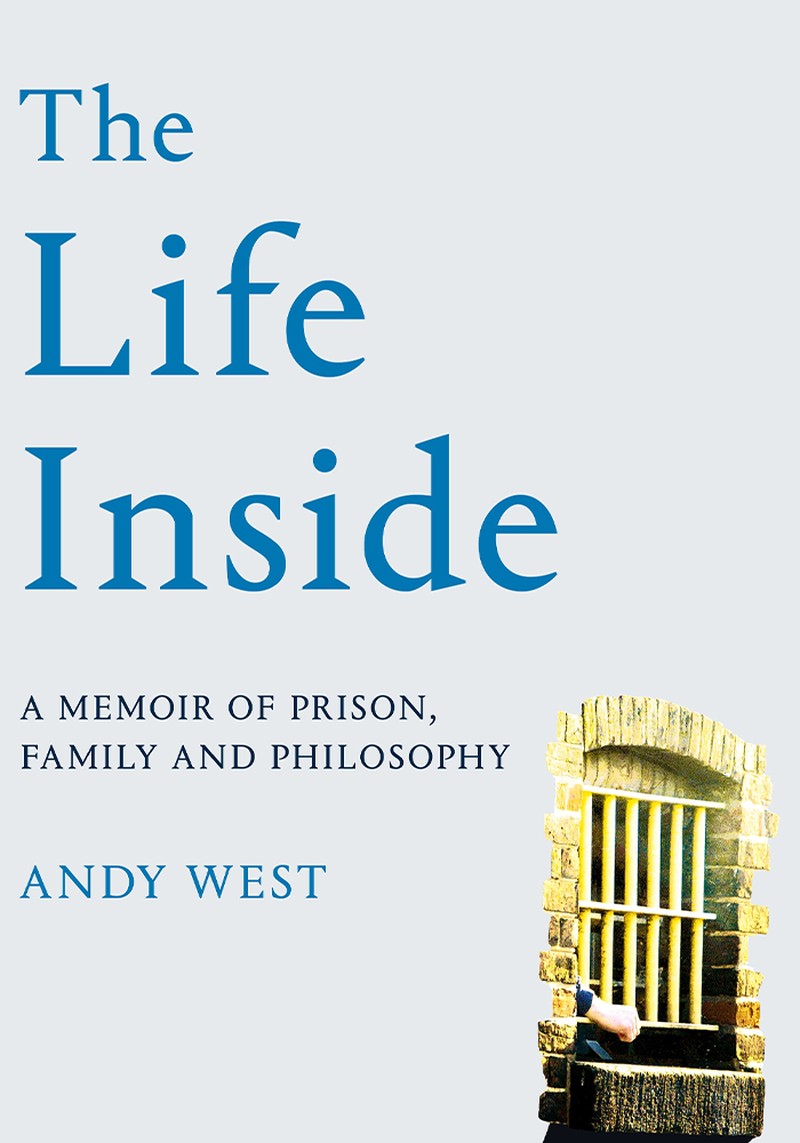My Interesting Job: Prison Teacher

Andy West
My father and my uncle both spent time inside. My brother was in and out of prison during the throes of his heroin addiction. That made prison a big preoccupation of mine – I grew up watching things like Scum with Ray Winstone and Oz. My sister in law was also a prison officer for about a decade.
I remember visiting my brother in prison when I was six. I came out feeling I’d had a sort of extra-terrestrial experience in a forgotten world – being among people who very few other people get to be around. I think it made me quite angry, but it also gave me a sense of responsibility: a lot of people don’t know about this place, but I do, so if I can go into that world and offer something, I kind of have to.
Prison isn’t how most people imagine it to be. Because not many of us have access to real-life prisons, our idea of prison comes from the imagination – we all have an image of a place where life is nasty, brutish and short. I’ve worked in maximum security prisons, middle-grade facilities, open prisons, women’s prisons, and places where people have committed sexual offences. The reality is each prison is unique, with its own architecture, smells, people and so on. They don’t conform to our imagination’s idea of them – and neither do the people within them.
People don’t necessarily survive prison through violence. They survive it through detachment. They learn to forget about the outside world and reduce their expectations from life. I’m more used to seeing that vacancy in people’s eyes than violence.
Living in prison is like living in an airport. The churn of people is so high, you don’t get a chance to form meaningful relationships. But I think teachers in prison can give people the idea that you can do more than just survive this place. You can actually think and reflect. You can let the detachment I mentioned – the hollowing-out – go for a brief time. I had a student who had been in prison for almost three decades and had just stopped trying. All he saw were the grey faces around him. After one of my lessons he came up to me and gave me a note. It just said ‘two hour holiday’. That’s what my lesson was for him. When I went back to teaching in prison after 18 months of the pandemic, people wanted to be in my classroom just because it meant not being in their cell.
There’s a surprising amount of kindness in prisons. Of course there’s an each-man-for-himself aspect to life inside, but there’s also camaraderie, togetherness and people looking out for each other. There are things like Sunday cook-ups on landings, with each person putting in a little bit.
As a teacher in prison you’re kind of neutral. There might be tension between the inmates and the officers, but there’s no street cred in confronting a philosophy teacher! If there is any threat from a teacher, it’s probably to do with bad educational experiences in the past. Someone might have had a horrible time at school or be nervous about being tested because of the potential for humiliation, so occasionally there’s a little bit of friction but it’s very slight – there’s no squaring up to me.
I don’t go into prisons to rehabilitate people. I don’t think education’s conditional on you turning out to be a good person after all. I’ve had students who’ve really engaged with my class, I’ve had a great relationship with them, they’ve got a lot out of it, they’ve been released – and then three months later they’re back. I don’t feel any sense of defeat about that. I have to accept people are in my classroom for a host of reasons – some of them might be on suicide watch, others might just be in there trying to avoid a beef with someone elsewhere. You just have to work with what you’ve got.
Prison being in my face a lot gives me a constant reminder of my own luck. I feel lucky not to have been to prison and I always wonder why I’ve been lucky. Is it actually luck? Or justice? Is it down to my own character and constitution? Or something else? These are the very same questions I’m asking my students in the classroom today.
Teaching in prison can have some comically absurd outcomes. Imagine there’s a just world – a place where good things happen to good people and bad things happen to bad people. Imagine there’s also a luck world, where everything is decided at random. Our world is in the murky borderlands between the two – and this never seems truer than when you’re in a prison. You meet people who have had such extreme childhoods of neglect, abuse and poverty, you look at their crimes and you think surely they have been acted upon by those forces. At the same time, you don’t want to dehumanise them by taking away what responsibility they might have. When I discuss these ideas, I’m often on the side of luck – any of us could be in anyone else’s position – but students are often on the side of taking responsibility. They’ll say I’m the one who got myself into this situation, I’m the one who can get myself out of it – they’re the ones telling me not to give them any hard-luck stories!
There are plenty of good projects going on in prisons. There are therapeutic prisons like HMP Grendon; there are charities and educational organisations doing good work too. But they have to keep their head down a little bit. The first time I wanted to write about prisons, I had to go to the Ministry of Justice for sign-off. They weren’t worried about me writing an exposé of prison life; they were concerned about it being in print that there were philosophy lessons going on in prisons. They thought there might be an attempt to close the project down by people who think this sort of thing shouldn’t be happening. Public outrage is one of the challenges for any project involving prisons – you have to square what you’re doing with people who think prisons are all about retribution not rehabilitation.
Some people refer to prison as ‘bed and breakfast’. They themselves might be working long hours and struggling to heat their house and eat. In that context, the humane treatment of inmates – who get a roof over their head for free and so on – can be upsetting. For me, that’s a very good argument for trying to improve those people’s living conditions as well.
Since I used to visit my brother 25 years ago, the prison population has doubled. It’s been climbing at a much higher rate than the average population, so there’s a lot more overcrowding. As a result, the government is looking at building ‘super prisons’ in out-of-the-way locations. That seems like a wrong-headed plan. We know good family relationships give people a better chance when they get out. If someone’s in prison 200 miles from their family in the middle of nowhere, and that train ride’s expensive, you’re not helping them maintain those relations. Bigger prisons also tend to have worse gang issues than smaller facilities.
Since the murder of George Floyd in 2020, though, I’ve also seen more about the abolition of prisons. I grew up in an era when even the Labour party under Tony Blair was all about punishing criminals, promising to be tough on crime. There was no viable alternative to that, but it seems now that the idea of abolishing prisons is getting a bit of traction – I’ve even seen explainer videos about it on the BBC. Abolition is a complex issue and I’m not sure where I stand, but just the fact it’s in the conversation is grounds for hope that things will improve.
How do you get the middle-classes to care about this? That’s the million-dollar question. Because they’re the ones who will ultimately do something about it. I also teach children and, it’s funny, when I’m in primary schools I can feel the general public looking over my shoulder – it’s in the language you’re using, the setup of the classroom, what’s written on the noticeboard, and the expectations. That scrutiny exists because 93% of children go to state schools. When you go into a prison, you can feel the general public looking in the opposite direction. You can feel the abandonment – that’s why I can go into a prison classroom to teach and the textbooks are all from 1987. I haven’t figured out how you change this, but I’m hoping my book will bring a new audience to this forgotten world.
All products on this page have been selected by our editorial team, however we may make commission on some products.
DISCLAIMER: We endeavour to always credit the correct original source of every image we use. If you think a credit may be incorrect, please contact us at [email protected].



